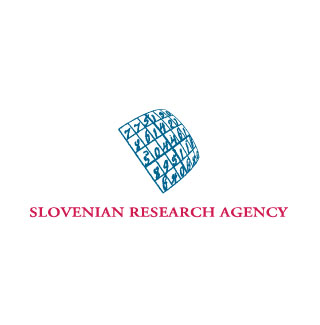Projects
Biotechnological Hub of the NIB (BTH-NIB)
The purpose of the investment project BTH-NIB is the assurance of the appropriate infrastructural conditions for the use of research and developmental opportunities in the fields of operation of the NIB.
Play Video About project Publication
EpCAM Biology at Structural Level as a Foundation for Efficient Tumor Targeting
Project coordinator: PhD Brigita Lenarčič, FKKT
Coordinator for NIB: PhD Tamara Lah Turnšek
Code: J1-7119
Duration: 1. 1. 2016 - 31. 12. 2018
The authors acknowledge the project J1-7119 was financially supported by the Slovenian Research Agency.
Abstract
Colorectal, prostate, breast and lung cancers remain major human malignancies with respect to occurrence as well as mortality rate. Classic treatment strategies incorporate surgery, radiation therapy and/or chemotherapy while the current trends focus on targeted strategies. It has become clear that efficient targeting of cancer cells requires understanding of cellular heterogeneity and plasticity during metastatic cascade, also in the light of epithelial-to-mesenchymal transitions (EMT/MET). In the last decades, significant effort has been made in identification and detailed research of appropriate marker molecules and cancer-associated events at the molecular level. One of the molecules that received significant attention is EpCAM (CD326), a tumor-associated transmembrane antigen with cell proliferative and cell-cell adhesive properties. This stem and carcinoma cell marker is targeted by several anti-tumor therapeutic approaches, however with limited success due to limited binding to EpCAM, presumably due to variable rate of EpCAM surface recycling, association with other carcinoma-associated proteins, and accessibility due to trans-cellular oligomerization. Recently, our group made a significant advancement in the field of EpCAM structural biology by solving the crystal structure of the extracellular part of EpCAM, which enabled us to explain various aspects of its biology, however many questions remain, particularly regarding its oligomerization, association with claudin-7 into cell-proliferation enhancing signaling complexes, and the impact of cytoskeleton-tethering interaction with alpha-actinin. On these premises we build our project with the overall goal of providing an in-depth analysis of EpCAM biology, particularly in the light of epitopes available for carcinoma cell recognition and targeting, plus their alterations due to molecular events associated with carcinoma progression. Additionally, by considering small-molecule compounds aimed at EpCAM cell-proliferation enhancing oligomers and signaling, we plan to provide a complementary therapeutic option to enhance the success rate of current and yet-to-be developed EpCAM-based therapeutic/drug-delivery approaches. To fulfill the outlined aims we will tackle the research problems using a multidisciplinary approach which includes various in vitro and in vivo methods supported by extensive in silico analysis, also through collaboration with distinguished research groups from Slovenia and abroad. Furthermore, the proposed project has an applicative component through the already established link with three research groups developing anti-EpCAM binder molecules for drug delivery. We strongly believe that any novel result on the described aspects of EpCAM biology, supported by structural data, will provide excellent credentials for enhancement of existing or even design of completely new therapeutic approaches.
Researchers - link to database SICRIS
Information about the project - link to database SICRIS


 Scope of NIB's accreditation is given in the Annex to the accreditation certificate and in the List of accredited methods for detection of GMOs and microorganisms – plant pathogens
Scope of NIB's accreditation is given in the Annex to the accreditation certificate and in the List of accredited methods for detection of GMOs and microorganisms – plant pathogens Holder of National Standard in the Field of Amount of Substance/Bioanalysis of Nucleic Acids/GMOs and Microorganisms
© 2023- National institute of biology, all rights reserved

